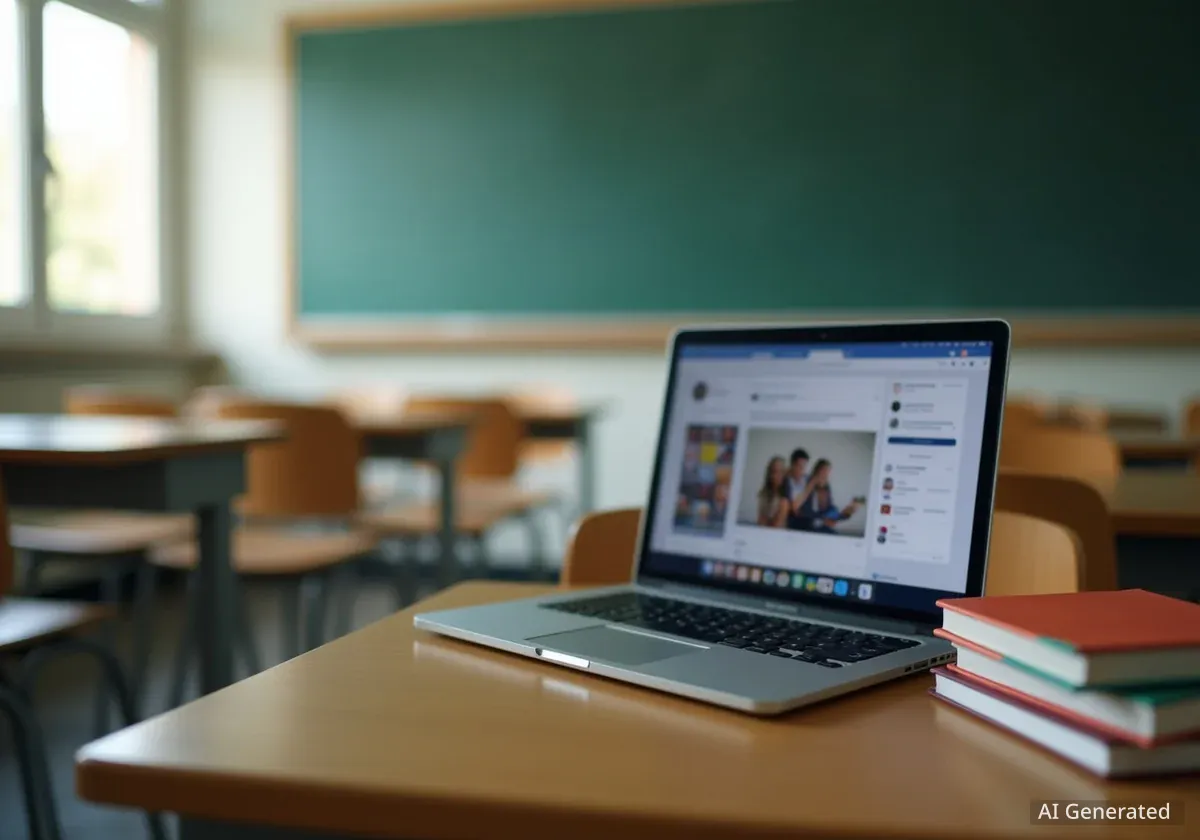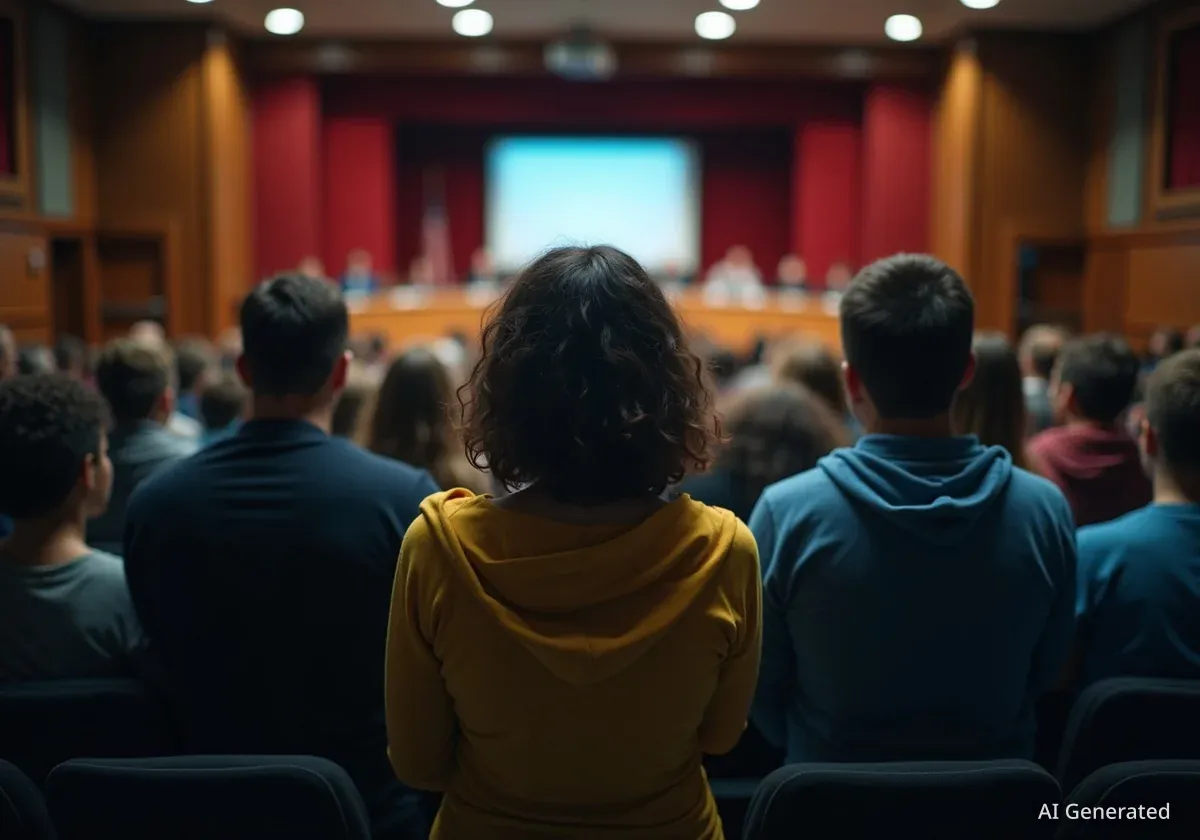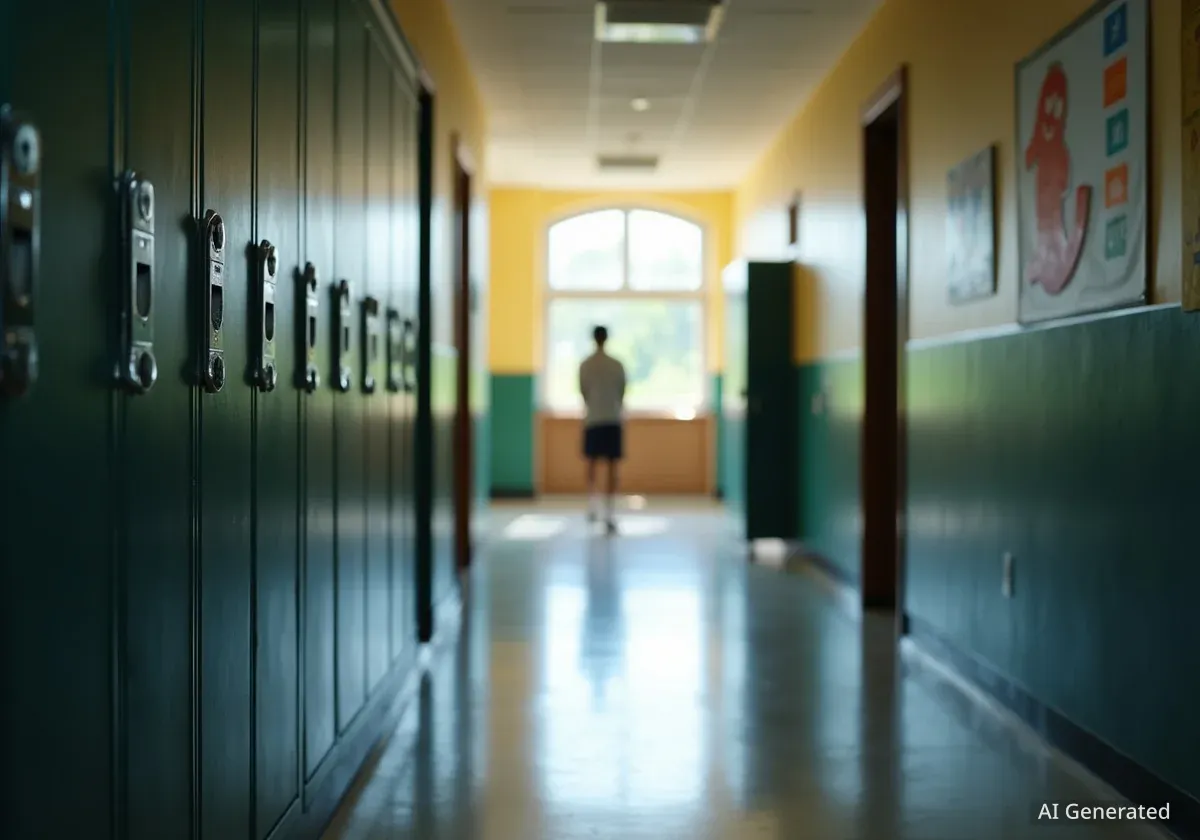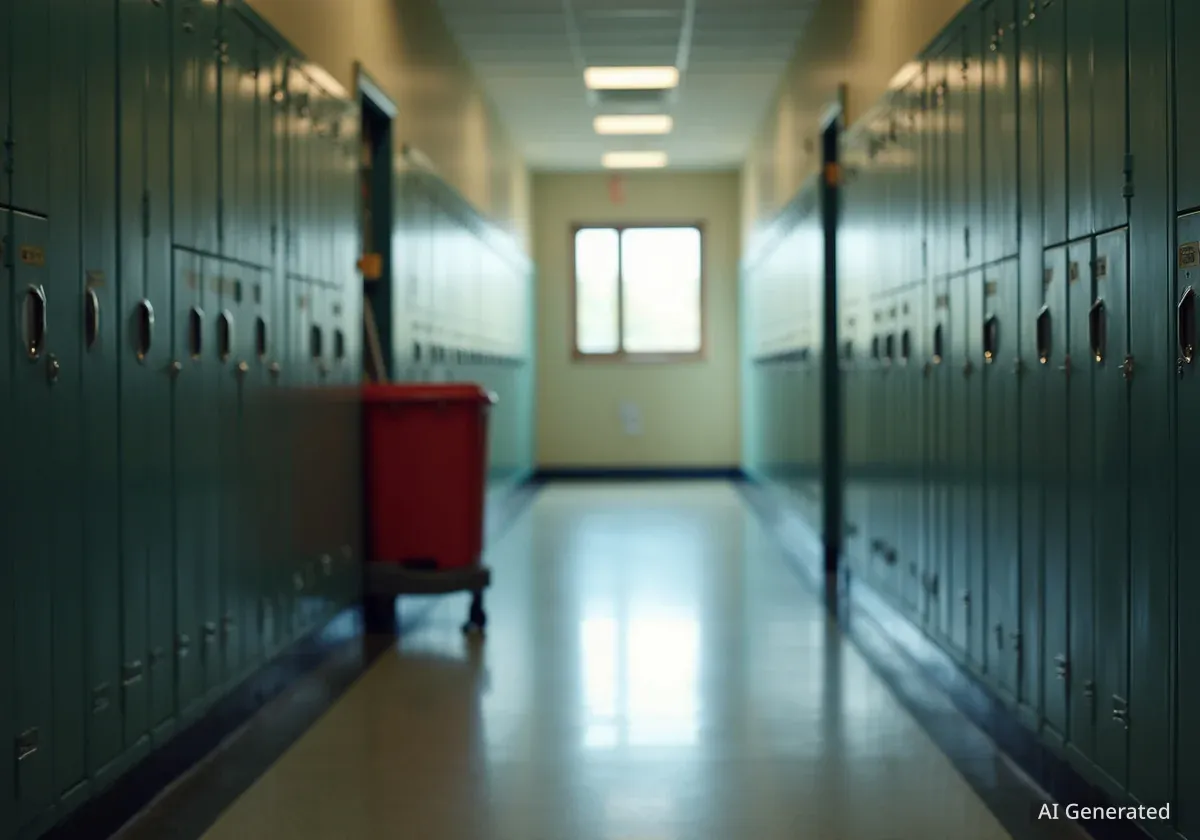Two public school teachers in Cobb County, Georgia, are no longer employed by the district, and several others have been placed on administrative leave. The disciplinary actions followed social media posts that reportedly celebrated the recent murder of conservative activist Charlie Kirk, according to the district superintendent.
The announcement was made by Cobb Superintendent Chris Ragsdale during a school board meeting on Thursday evening. He stated that the district took action after receiving complaints from parents, community members, and other teachers who expressed concerns about safety in the classroom.
Key Takeaways
- Two teachers are no longer with the Cobb County school system following controversial social media posts.
- Several other educators in the district have been placed on administrative leave.
- The posts reportedly condoned the murder of conservative activist Charlie Kirk.
- The incident has ignited a national debate about the First Amendment rights of public employees.
District Responds to Community Concerns
During the school board meeting, Superintendent Ragsdale addressed the community's reaction to the social media activity. "Following (Kirk’s) murder, a number of individuals, including a handful of Cobb educators, intentionally and publicly celebrated and condoned his murder on social media," Ragsdale said.
He acknowledged that the posts led to significant concern. "They wondered if they and their children are safe in Cobb classrooms," he explained. Ragsdale offered reassurance, stating, "The answer is an emphatic ‘yes.’ This is not how the vast majority of Cobb team members act."
The district, which is the second-largest in Georgia, has not specified the exact number of employees placed on leave or the precise content of their posts. However, officials confirmed they will report the comments to the state’s teacher licensing board and pursue "appropriate personnel action."
Background on the Incident
Charlie Kirk, 31, was the founder of the conservative group Turning Point USA. He was killed on September 10 during an event at Utah Valley University. His death prompted widespread condolences but also led to critical and celebratory comments on social media, some of which were made by public educators.
A National Trend and Legal Questions
The situation in Cobb County is not isolated. Across the United States, several educators and professionals have faced consequences for their online statements regarding Kirk's death. This has brought the issue of public employee free speech rights to the forefront.
For example, Emory University in Atlanta confirmed on Thursday that it had terminated a non-clinical faculty member in its school of medicine over a social media post that "caused concern within our community." Similarly, a professor at Columbus State University resigned from two administrative positions, though he remains a faculty member, after making comments on a news outlet's Facebook post about Kirk.
These events raise complex legal questions about the boundaries of the First Amendment, especially as it applies to individuals employed by public institutions like schools and universities.
Expert Analysis on Free Speech for Educators
While the U.S. Constitution protects free speech, legal experts note that these rights are not absolute for public sector employees. Private companies generally have broad authority to fire employees for their speech. The rules for public employees are more nuanced.
"‘Aren’t they public employees? Don’t they have First Amendment rights?’ That is definitely not the end of the matter," said Deepa Das Acevedo, an associate professor of law at Emory University.
Das Acevedo explained that teachers sign employment contracts and must adhere to professional codes of conduct. Most school districts, including Cobb County, have detailed social media policies that govern employee behavior online. The First Amendment limits the government's power to restrict speech, but it does not provide blanket protection.
"You can still be liable for harassing speech, hate speech and so on," she added. This means that even if speech is made in a personal capacity and does not explicitly call for violence, it can still lead to disciplinary action if it is deemed to violate workplace policies or disrupt the educational environment.
Employee Social Media Policies
Many public school districts have policies that require employees to maintain a professional demeanor online. These rules often state that off-duty conduct, including social media activity, can be grounds for discipline if it negatively impacts the school's reputation or ability to function.
Perspectives from National Organizations
Teachers' unions have weighed in on the issue, arguing for a distinction between professional conduct and personal expression. They caution against what they see as censorship and retaliation for private opinions.
In a statement, American Federation of Teachers President Randi Weingarten addressed the situation. "Of course, no one should celebrate another person’s murder," she said. "But using this tragedy to encourage the doxxing, censorship and firing of people for their opinions — including educators’ private opinions shared during their personal time — is wrong."
This highlights the central conflict: balancing an educator's right to personal expression against a school district's responsibility to maintain a safe and professional environment for students and the community.
Professor Das Acevedo summarized the legal landscape, noting that there is significant room for public employers to act. "(D)epending on how the speech in question and its effects are framed, there is a lot of room for public employees to be disciplined or terminated, even though their speech hasn’t broken any particular law and was made in a personal capacity," she concluded.





